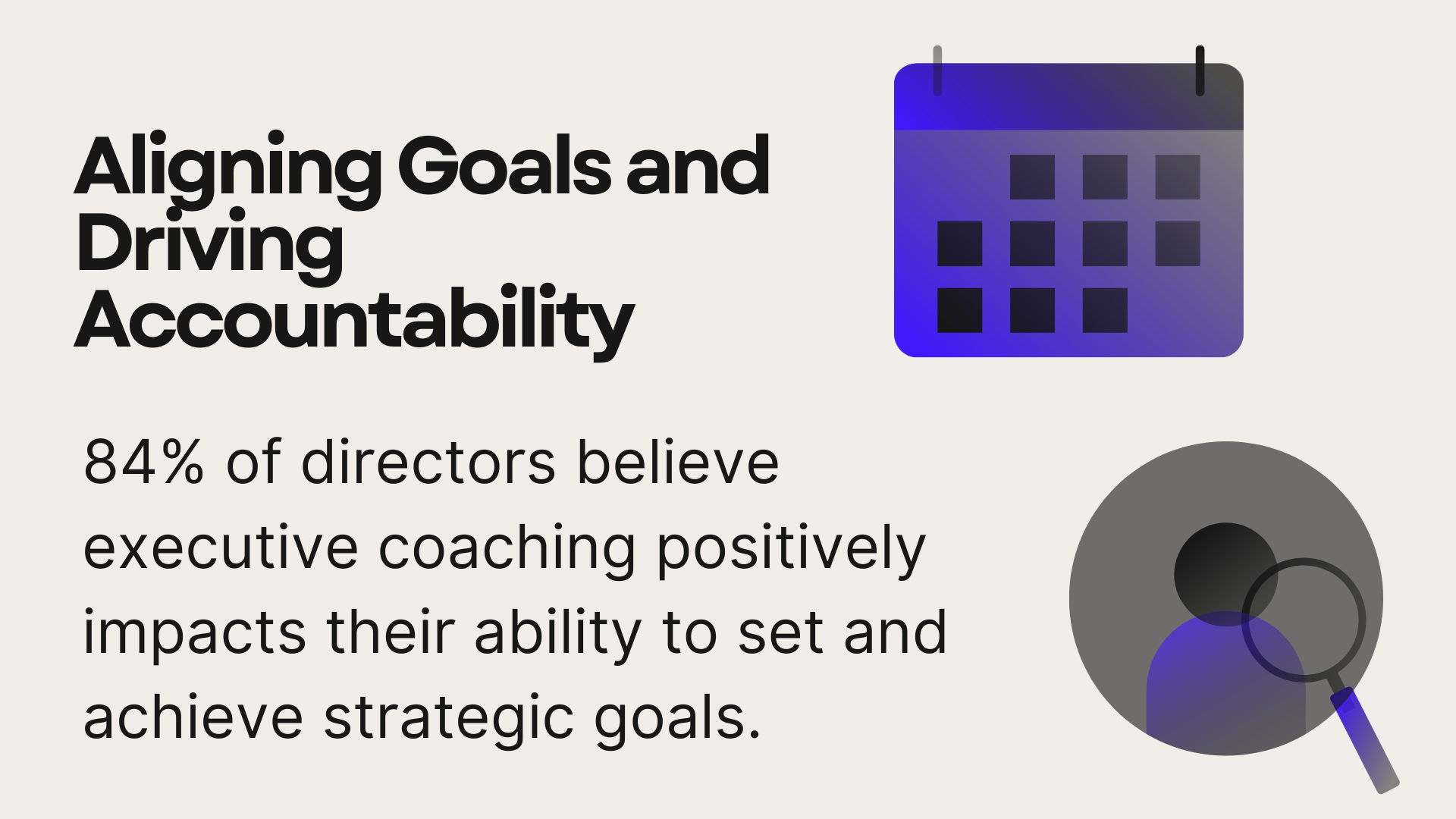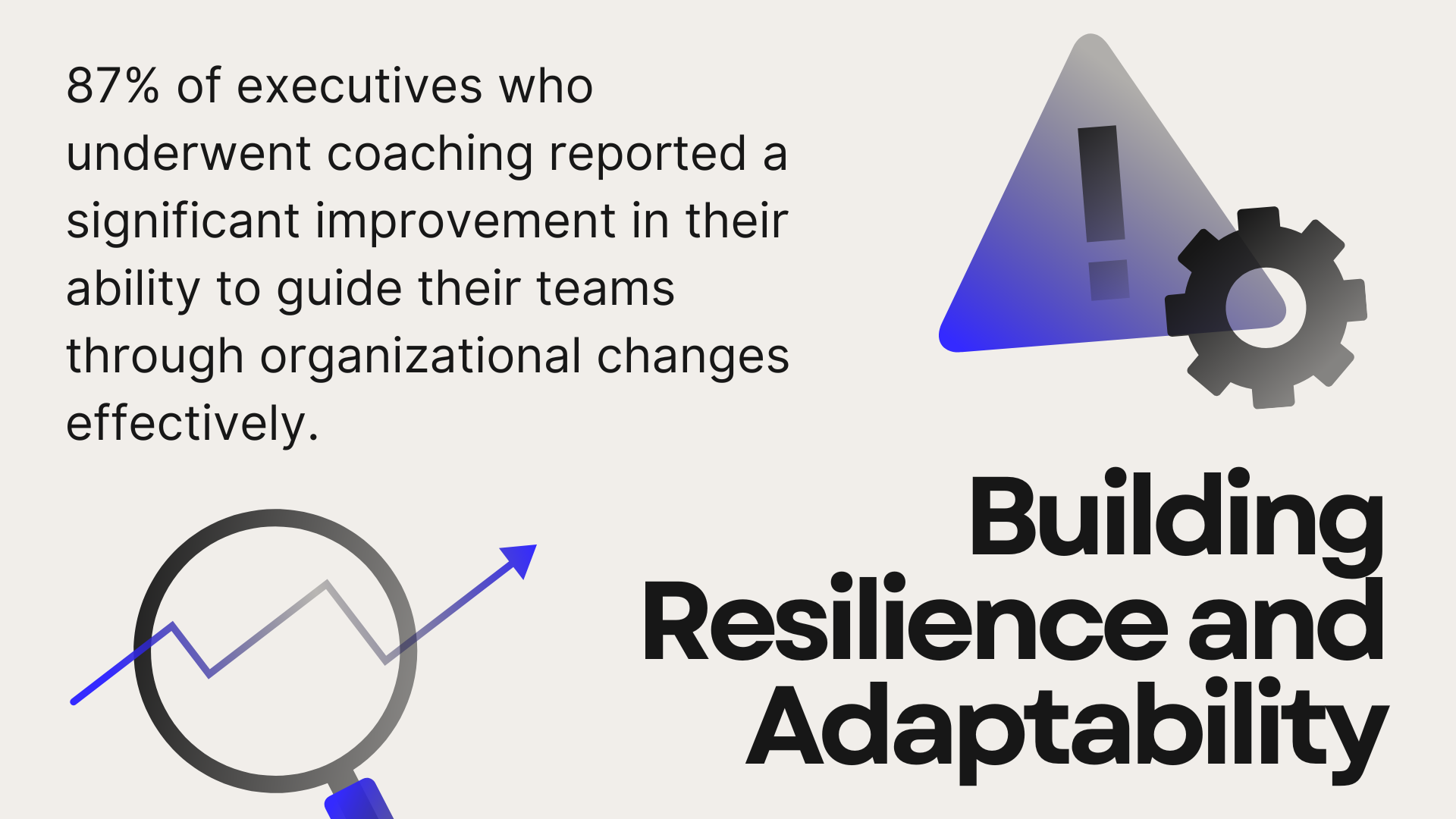
The Power of Employer Branding
Uncover how a strong employer branding strategy will help you lower the cost of hiring, attract better quality hires, and differentiate you from competitors.


Executive Coach, Career UpRising

Executive Coach, Tazeen Raza

Leadership Coach, KEM Leadership Coaching

Master Certified Executive Leadership Coach, JHM Executive Coaching

Leadership Coach & Trainer, Hello Velocity

Executive Coach, Blomberg Consulting, Inc.
Just like the growing trend of “life coaches” for those interested in self-development, executive coaching has become a valuable training resource for American businesses.
While coaching in the past focused on fixing toxic and problematic leadership behavior, it has since evolved to focus on nurturing the growth of high-potential talent.
With this shift, it has also become instrumental in helping leaders and teams navigate the complexities of collaboration and conflict resolution.
Teams often face unique challenges, such as interpersonal dynamics and power struggles, that are difficult to manage alone.
Executive coaches provide the insights needed to overcome these hurdles and reach new heights of performance, both for employees individually and teams as a whole.
Consider the role of an executive coach.
It’s different from a mentor, manager, and personal advisor, who often act as role models to guide leaders from their personal experiences.
Interestingly, many of the most influential coaches aren’t necessarily experts in the fields they coach. Instead, they’ve trained explicitly in coaching, much like sports coaches who may not have been star athletes.
So, what is executive coaching? And what do coaches do for leaders, then?
At its essence, executive coaching is a personalized process that boosts an executive’s leadership skills and behaviors, akin to having a personal trainer for your career.
Unlike traditional leadership programs with a fixed curriculum, executive leadership coaching tailors its approach and adapts to the unique developmental needs of each executive.
It offers one-on-one guidance to tackle the specific challenges of any role and industry.
While executive coaching is primarily offered to organizational leadership from mid-to-senior level leaders, its impact has a ripple effect across all corporate hierarchical levels.
At the heart of every successful organization lies a high-performing team of employees working in harmony and with precision and passion.
What, then, exactly defines a high-performing team?
Well, it takes more than just assembling a talented employee group.
High-performing teams have a unity that maximizes each member’s strengths and collectively addresses their weaknesses.
They are innovative, confident, and agile.
These teams don’t just meet expectations—they can consistently push the envelope of what’s possible and deliver exceptional results.
However, the real challenge for the C-suite is forming and maintaining these high-performing teams.
Enter executive coaching.
Unsurprisingly, the professional world increasingly turns to executive coaching as a strategic tool for building and developing high-performing teams.
As Lorraine Rise, a seasoned executive coach from Career UpRising, puts it, “A high-performing team is only made through high-performing individuals. Executive coaches can be instrumental in guiding individuals to improve their self-awareness, as well as communication and change-management skills.“
Every leader requires an external perspective—a mirror to reflect on their strengths, weaknesses, and areas for improvement.
This is even more complex for teams, as they have their own group dynamics, conflicting interests, and unspoken rules that they often can’t address on their own.
Without an objective lens, it’s challenging to break through these issues and reach the next level of performance.
Executive coaches can help by providing a safe space to reflect, gain outside perspective, and develop plans, both individually and as part of a unit.
As Karin Mayer, a Leadership Coach at KEM Leadership Coaching, states, “Executive coaching can be most effectively applied to developing high-performing teams by focusing on both the individual members as well as the team as a whole. During team coaching, the team has a collective goal that they have been unable to achieve on their own, which is where the coach comes in.“
Below are some ways that executive coaching can help develop competent leaders and, by extension, level up teams.
Building a team is no small feat.
Bringing together a diverse group of competent employees in a dynamic environment and aligning them toward a common goal requires careful attention and effort.
However, with the right strategies, it’s possible to transform them into a unified, high-performing team. Team-building activities, a buddy system, cross-training, and peer recognition programs are all strategies that help improve collaboration.
Above all, strong leadership plays a crucial role in inspiring and uniting teams, leading to improved morale, higher productivity, and better retention.
Coaches are the catalyst that helps leaders create an environment where collaboration and a shared sense of purpose thrive.
Tsila Blomberg, Executive Coach at Blomberg Consulting, Inc., shares a personal account of the complex dynamics at play within teams.
She explains, “I’ve witnessed how a skilled coach can significantly improve trust, collaboration, accountability, and adaptability. For example, when I worked with a newly-promoted supervisor struggling to lead her former peers, we focused on emotional intelligence, leadership development, and active listening.”
Tsila further elaborates on how the situation was resolved:
“By helping her understand and address the team’s reluctance, we were able to unite them around her vision. Their renewed enthusiasm spread throughout the company. The key was shifting her mindset, leveraging her strengths, and empowering her to act confidently, without hesitation.”
To build a successful team through executive coaching, defining clear goals and objectives is vital.
What specific outcomes does the team need to achieve?
Maintaining concrete targets and establishing success indicators ensures that everyone is working toward the same mission.
An executive coach can help clarify what a team or leader wants to achieve and provide the guidance needed to stay focused on those objectives
According to a survey by the Institute of Directors (IoD), 84% of directors believe executive coaching positively impacts their ability to set and achieve strategic goals.
Karin Mayer explains, “The executive coach helps the team clarify their goal and sets an agreed-upon timeline and framework to begin working towards the goal.
The coach works with the team as a cohesive unit and does not favor one team member’s agenda over another. Collectively, the coach serves the team and helps the team gain clarity on the obstacles and behaviors impeding the attainment of the goal.”

With the increased scrutiny of toxic work environments, microaggressions, and lack of inclusivity, companies are pressured to create supportive workplaces prioritizing respect and diversity.
Employees, too, place a higher value on their well-being than ever before, often looking for roles that align with their personal wellness and mental health goals.
According to Gartner’s research, as many as 82% of employees feel it is important for their organization to see them as people, not just employees.
Particularly, employees want to feel recognized, valued, and autonomous even when collaborating in teams.
For these reasons, a good leader must go beyond strategy and decision-making; they also need to develop their EQ and manage emotions effectively—both personally and with others.
“Executive coaching helps executives gain greater self-awareness to be more effective leaders. Typically, they’re honing in on their own leadership gaps that are causing friction internally (e.g., stress, burnout, lack of confidence) and within the team (e.g., miscommunication, low performance, unsustainable workloads),” explains Brittany Canaski, leadership coach and trainer at Hello Velocity.
Imagine a soccer team losing a game and receiving no advice on what went wrong or how to improve.
How could they improve for the next match?
Without feedback, their performance might stagnate—or even decline.
Just like top athletes, top-performing teams also need ongoing guidance and feedback.
Sadly, many outdated performance management systems leave employees working day in and day out without meaningful guidance apart from an annual review.
Due to this absence of consistent feedback, employees miss out on opportunities to grow, improve, and develop, which can also seriously impact company results.
A study by CIPD revealed that 86% of those surveyed believe poor communication is a leading cause of workplace failures.
Executive communication coaching equips leaders with the tools and techniques to actively listen, convey ideas, and, most importantly, communicate clearly.
For example, coaches can assist executives in fine-tuning their communication styles, adapting them to various audiences, and helping them positively handle conflicts.
In the business world, change is constant, requiring teams not just to cope but to thrive in its wake.
Therefore, it is no surprise that 81% of executives in a recent McKinsey & Company survey consider adaptability crucial for long-term organizational success.
Famous leadership expert John C. Maxwell once said, “Change is inevitable. Growth is optional.“
Executive coaching empowers leaders to choose growth.
It encourages a growth mindset where change is seen not as a barrier but as an opportunity for learning and innovation.
“Leaders need to be agile, able to make timely and informed decisions in a rapidly changing environment,” explains executive coach Tazeen Raza.
Executive coaching can equip leaders with practical strategies for navigating difficult transitions. More importantly, it helps in cultivating a resilient organizational culture.
Research from the European Mentoring and Coaching Council (EMCC) reinforces this, revealing that 87% of executives who underwent coaching reported a significant improvement in their ability to guide their teams through organizational changes effectively.

Despite advancements, executive boardrooms often lack diversity.
Women in leadership statistics highlight significant gender disparities in management roles, a challenge similarly seen with racial inequality and socioeconomic barriers, which continue to limit opportunities for diverse talent to rise into leadership positions.
For these reasons, companies need to intentionally create more equitable pathways to leadership for underrepresented groups.
Coaching can empower employees from all backgrounds and create an environment where everyone feels valued and capable of contributing at their highest potential.
Joshua Miller, a Master Certified Executive Leadership Coach at JHM Executive Coaching, encapsulates this approach well: “In my practice, I focus on honing specific skills that have proven most impactful: effective communication, conflict resolution, and the ability to inspire and motivate others.
Perhaps most crucially, I work with executives to develop their capacity for creating psychologically safe environments where innovation thrives and team members feel empowered to contribute their best ideas.”
By integrating executive coaching into leadership development, organizations can address disparities, cultivate diverse perspectives, and drive innovation.
So, how do you create an effective coaching program within your organization?
Take NASA, for example. They discovered that many of its managers, primarily engineers and scientists, were great at solving technical problems but struggled with strategy, planning, and personnel management.
In response, they developed an in-house coaching program led by a select group of senior employees with strong listening, coaching, and development skills.
However, while managers with coaching skills provide great value, external coaches often offer a level of autonomy that internal coaches may lack.
Forbes reports that one-third of Fortune 500 companies regularly use external executive coaches to support leadership development for their executives and rising leaders.
Regardless, there are many successful approaches to building and establishing coaching programs.
High-performing organizations blend coaching into leadership performance plans; others assign external coaches to high-potential employees.
Some, like NASA, establish formal coaching roles; others foster 1:1 mentoring relationships between senior executives and future leaders.
In any case, there is compelling evidence that executive coaching can deliver significant benefits.
A study conducted by Manchester, Inc. surveyed 100 executives, primarily from Fortune 1000 companies, and found that companies investing in executive coaching experienced an average return on investment (ROI) of nearly six times the cost of the coaching.
The benefits of executive coaching were:
If you’re considering introducing a coach into your organization, now is the time to act.
Partnering with experienced executive coaches or creating an internal coaching program are great ways to begin fostering growth.
Once seen as a privilege reserved for top-tier executives, executive coaching has evolved into a vital resource that can unlock organizational growth, nurture leadership development, and boost team effectiveness.
Senior Content Writer at Shortlister
Browse our curated list of vendors to find the best solution for your needs.
Subscribe to our newsletter for the latest trends, expert tips, and workplace insights!

Uncover how a strong employer branding strategy will help you lower the cost of hiring, attract better quality hires, and differentiate you from competitors.

Strategic leadership focuses on the “bigger picture,” helping companies benefit in the long run. Learn what skills it takes to get there and why this leadership style is paramount in today’s workplace.

Following a wave of mass resignations, employees unsatisfied with their new jobs faced the “Great Regret.” Now, a new workplace trend is on the rise.

From enrollment trends to financial considerations, get a comprehensive view of the state of colleges with statistics that paint the landscape of higher education in the country.
Used by most of the top employee benefits consultants in the US, Shortlister is where you can find, research and select HR and benefits vendors for your clients.
Shortlister helps you reach your ideal prospects. Claim your free account to control your message and receive employer, consultant and health plan leads.